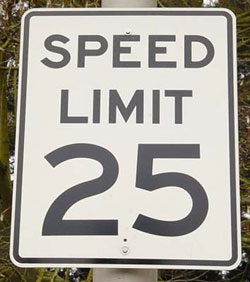 My blogging friend Ken Brown, writing at C. Orthodoxy, has been thinking a lot lately about how we use technology (specifically birth control, but the trend is wider than that) to try to mitigate the consequences of immoral behavior. The goal is to make that behavior (promiscuity, for instance) morally neutral, or at least bring the harm down to acceptable levels.
My blogging friend Ken Brown, writing at C. Orthodoxy, has been thinking a lot lately about how we use technology (specifically birth control, but the trend is wider than that) to try to mitigate the consequences of immoral behavior. The goal is to make that behavior (promiscuity, for instance) morally neutral, or at least bring the harm down to acceptable levels.
Technology promises to remove the objections to immoral behavior, or at least that is the hope. Here is how Ken has expressed it:
Human nature being what it is, we almost never admit that something we do habitually is wrong. We might condemn others for doing the same things, or critique our own vices in the abstract, but if it is something that we do not want to give up doing, we will pretend we are innocent, and either deny it’s a vice at all, or pretend that we don’t do it. It is for this reason that moral arguments can place very little stock in claims that come in the form: “I’ve done such and such for years and it’s never done any harm.” Such claims are rarely credible and have been used to justify of all manner of systemic evil.
To see this, consider an example that may at first seem trivial, but turns out to be anything but: Speeding. Most of us consider speeding a minor vice at worst, and could give a thousand reasons why it really isn’t that bad, how it has never done me any harm, how it is sometimes more dangerous not to speed, etc., etc., etc. But the truth is these are just excuses. We enjoy speeding, it gives us a thrill and, supposedly, saves us time, so it’s tempting to dismiss it as harmless and acceptable. Thus, even when we do get in an accident, this rarely convinces us to make a consistent or concerted effort to change. We just do not want to make the sacrifices necessary, even though an honest appraisal would recognize that speeding doesn’t actually save as much time as we imagine, and adds a great deal more stress than we usually admit.
For the truth is that speeding is not harmless at all. It directly contributes to auto accidents which injure or kill over 50 million people a year and cost untold billions in property damage. Though we like to tell ourselves that speeding is a private choice, that we are adults who know the risks and have the right to take them if we wish, speeding does not just affect the people who do it; it impacts everyone around us: other drivers, pedestrians, the families of those hurt or killed, businesses and insurance companies, health care providers, law enforcement and other government agencies, and through them, all of us. Though we, as individuals, may be lucky enough not to be seriously harmed by it, every individual choice to speed carries these risks and encourages others to speed as well.
Read the rest of Ken’s post: Private vice and systemic evil.
When it comes to moral decisions, are there ever any truly “private choices” that fail to have any larger consequences for society? One of the central beliefs of the post-modern age is that what I choose to do with my life is a private matter that doesn’t concern anyone else, and should not be guided by anyone’s rules but my own.
But is that right? Or was John Donne right to say “No man is an island, entire of itself…”?


Thanks for the link!
BTW, whenever I hear that John Donne quote, I can’t help but think of the way the movie About a Boy (ab)used it:
“Every man is an island. I stand by that. But clearly some men are island CHAINS. Underneath, they are connected.”
Despite the implicaiton that some men are not thus connected, it really is a pretty good movie about growing up and taking responsibility for your life and the people around you.
Great post, Charlie. To answer your question, no, I don’t think there are any “private vices” that have no further ramifications for either oneself or anyone else, much as we might like to think there are.
I tell my kids this when they misbehave or disobey: your behavior is affecting more people than just you! And then we talk about what those effects are, and how it’s true for everyone in the family (not just them).
Hi Charlie –
The way we live our individual lives sends ripples throughout society. If we make immoral choices, it serves as a validation for others to behave in a similar manner.
Paul said in the scriptures we should follow him as he follows Christ. I want my life to inspire others to follow Christ.
Blessings,
Susan